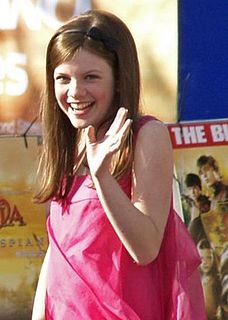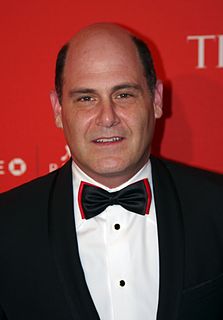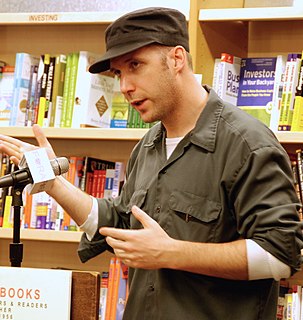A Quote by Nick Antosca
I think the reason the stories are briskly paced, when they are, is that I like story. I like stories where things happen and there are surprises and reversals, in addition to vivid characters and a memorable voice. So those are the kinds of stories I try to write. And it turns out that's pretty much the only kind of writing that works for TV. It's a medium that just devours story, demands surprises and reversals. So my sensibility is suited to TV storytelling, at least as we think of it today.
Related Quotes
I usually make up stories for my kids.I like to tell them stories and make up any kind of crazy to involve them in characters. The kind of fairytales I don't like are the ones with happy endings, where there's just good and evil and things are perfect. I think when there's a good story for children it has a moral tale, so that's what I try to teach my kids.
A lot of people think that they are really cool because they don't outline. In my writing group, they would say, "I will never outline. I let the characters take me." C'mon, man - I outline the story, but it's only like one page. It's a list of possible reversals in the story, like things where everything will just change because of this certain reveal or this certain action. Then I start really digging into the character because, to me, I don't care what the story is.
What's neat about TV is you get really rich, an opportunity to tell really rich stories over the course of 20 hours. Film is cool because it's an hour and a half to two hours. You go on an adventure and by the end it's all cleaned up. Maybe in a franchise you have three chapters of a great story but in TV you can really get deep. You have more time to tell stories so I would definitely not rule out doing television in the future because I think it's a great medium for telling stories.
Humans are kind of story-propagating creatures. If you think of how we spend our days, think of all the time you spend on entertainment. How much of your entertainment centers around stories? Most pieces of music tell stories. Even hanging out with your friends, you talk, you tell stories to each other. They're all stories. We live in stories.
The chance to tell personal, language-specific, culturally specific stories is really flourishing on TV and I think it's just the nature of movies and international demands that you need to get a much bigger audience. TV is more like independent film was. The forms of adult drama and certain kinds of sophisticated comedy, there's no room for them in the tentpole movie universe.
Humans like stories. Humans need stories. Stories are good. Stories work. Story clarifies and captures the essence of the human spirit. Story, in all its forms—of life, of love, of knowledge—has traced the upward surge of mankind. And story, you mark my words, will be with the last human to draw breath.
My being Indian is possibly the biggest thing that influences my stories. Not just in terms of settings - most of the settings in my stories are Indian - but also in terms of characters and plot. I think growing up in India grew my imagination in certain ways that would not have happened in any other place. I'm also fascinated by the idea of India, and writing stories allows me to explore this. As for thematic elements, they are probably pretty obvious in my stories. I also hope that my stories bust stereotypes at least to a modest extent.







































